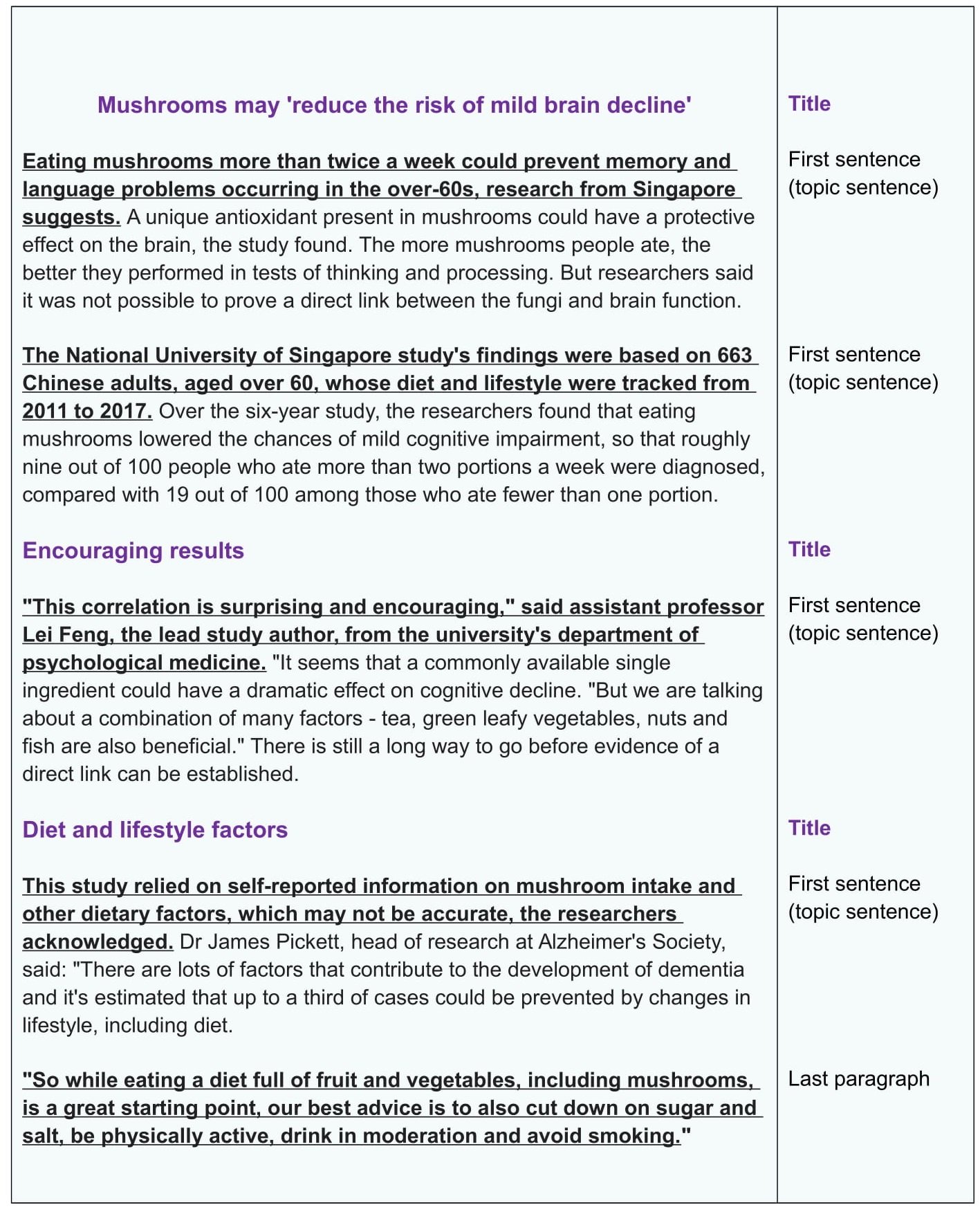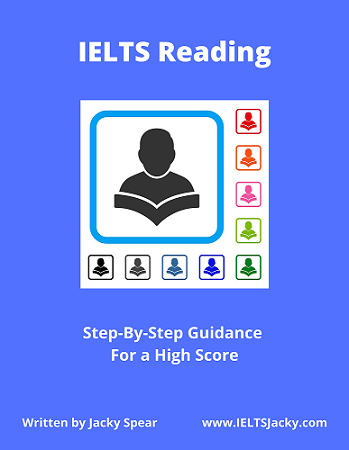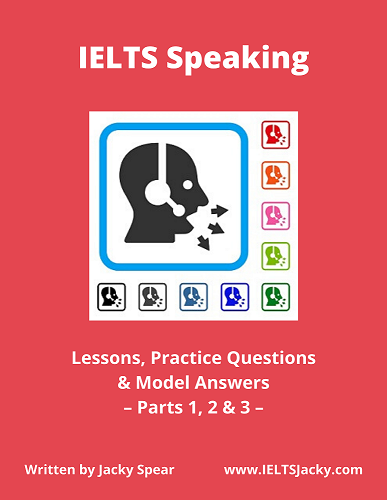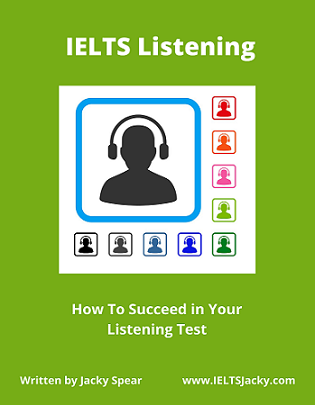IELTS Reading Skills
What They Are & How To Use Them
There are three key IELTS Reading skills that you need to master in order to do well in the Reading test. These are:
- Skimming
- Scanning
- Detailed reading
They are all equally important.
If you’ve read some of my other lessons in this section of the website, you will have heard me mention ‘skimming’, ‘scanning’ and ‘detailed reading’ many times. This page is where you’ll learn what they are and how to do them.
There are also two other things you need to understand for a high score:
- How to use context
- The importance of ‘topic sentences’
So let’s get started.
Vital IELTS Reading Skills
Many students get anxious when they hear the terms ‘skimming’ and ‘scanning’ as they imagine they need to learn a difficult new skill. Well, this couldn’t be further from the truth.
Think for a moment about how you read a piece of text in your own language. Do you slowly read each individual word and think about what it means?
No, of course you don’t.
You read through it quickly, getting meaning from keywords and chunks of language that make up phrases.
If you’re trying to find specific information in the text, you’ll look for the words or numbers closely related to that topic.
In other words, you skim and scan the text just as you need to do in your exam.
So, while these are indeed important IELTS Reading skills, they are also skills you use every day. You are just applying them to a different language.
It’s easy to get these two skills muddled up so read these definitions. I also explain why each is so important for your test.
Skimming
Skimming means to read the text quickly in order to understand the general meaning. When skimming, you do not read each word or study the text in detail. You are just getting the gist of what it’s about.
Why is this important for IELTS?
Skimming is one of the key IELTS Reading skills because once you understand what the text is about, it will be easier to find the specific information you need to answer the questions.
Understanding the general meaning of a text will help you to scan for the correct information and find the right answer.
How to skim read
1) Read the title and any headings and sub-headings. These give big clues as to what the whole text is about.
2) Read the first sentence (the topic sentence) of paragraph one. This will give you a good idea of what the paragraph is about.
3) Quickly glance down through the rest of the paragraph noticing key information such as names, dates and keywords.
4) Repeat this with each paragraph.
5) Read the last paragraph a little more slowly as it probably contains a summary of the whole text.
This technique can be applied to any text but only with practice will you learn to use it effectively.
Skimming practice
The most important thing to remember with skimming is that you’re gaining a general overview, not looking for specific information.
The following passage is an illustration of the skimming process.
It’s a real article from the BBC News website, although I’ve shortened it for the purposes of this exercise.
To start, try reading just the title, sub-headings, first sentences to each paragraph and the last paragraph. Even without skimming the rest of the text, you will have a very good idea of what the article is about.

Now follow the five steps of my ‘How to skim read’ strategy. When you’ve done this, you should have a sound understanding of the text and be ready to move on to the scanning process.
Topic Sentences
Before we look at scanning, I’ll say a quick word about topic sentences as I’ve mentioned them several times. I want you to fully understand what they are and why they’re important.
A ‘topic sentence’ is the first line of a paragraph and introduces the subject matter of that paragraph. It tells you what the rest of the paragraph is going to be about. This makes it a powerful tool to help your understanding of the whole text without reading it in detail.
Scanning
Scanning means reading a text quickly in order to find specific information. For the IELTS Reading test, this will be the information you need to answer a question. Scanning probably won’t give you the actual answer but it will help you locate where the answer is.
You could be searching for a name, a date, a phrase or synonyms of words in the question.
As with skimming, this technique allows you to find the information quickly without having to read the text slowly word by word. This will save you a huge amount of time. Time is your greatest enemy in the reading test.
Scanning is another everyday skill. You use it, for example, when deciding what to watch on TV. You scan the programme titles and the times they’re on and then you skim through the descriptive blurb to help you decide what you want to watch. You certainly don’t read the whole programme menu word for word.
How to scan a text
1) Pick out the keywords or phrase in the specific question you are answering. It could also be a name, number or date.
2) Be aware that the text may contain synonyms of these rather than the words or numbers used in the question.
3) Scan the text. When you spot what you’re looking for, underline it to come back to and read in more detail.
You’ll need to scan the whole text for the word or phrase you’re looking for as it may occur more than once. You’ll then have to check which location contains the answer.
Let’s have a go at this with our article about mushrooms.
See how quickly you can answer these questions by scanning the text. You’ll find the answers and some tips for locating them beneath the questions but it’s only by trying to answer them for yourself before checking my answers that you’ll really learn the technique.
I've created PDF of the text that you can download and print to save you scrolling up and down:
Questions
1) At which university was the study carried out?
2) What substance in mushrooms is believed to defend the brain against issues with recollection?
3) What does the report recommend that people should do to reduce the risk of dementia?
4) What position does Lei Feng hold at the university?
Answers & Tips
1) At which university was the study carried out?
Tip: Scan for the word ‘university’.
Answer: The National University of Singapore. (Paragraph 2)
2) What substance in mushrooms is believed to defend the brain against issues with recollection?
Tip: Scan for keywords such as ‘defend’ ‘brain’, ‘issues’ and ‘recollection’. Think of possible synonyms for these words in case they have been used instead.
In fact, synonyms have been used for three of the words:
- defend – protect
- issues – problems
- recollection – memory
Answer: An antioxidant. (Paragraph 1)
3) What does the report recommend that people should do to reduce the risk of dementia?
Tip: Scan for keywords such as ‘recommend’, ‘reduce’ and ‘dementia’. Again, think of possible synonyms. Here are two that have been used:
- recommend – best advice
- reduce – cut down
Answer: Eat a diet full of fruit and vegetables and also cut down on sugar and salt, be physically active, drink in moderation and avoid smoking. (Paragraph 5)
4) What position does Lei Feng hold at the university?
Tip: Scan for the name ‘Lei Feng’. This part is easy but to find the answer you’ll then need to interpret the information.
First, you need to understand what ‘position’ means in the context of the text. It means the job title or rank of this person.
Answer: Assistant professor (Paragraph 3)
The texts in the Reading test are longer than this one and the questions a lot harder. These are just to illustrate the technique of scanning and show you how simple it is to use.
Detailed reading
The last of our IELTS Reading skills is detailed reading and this is what gives you the answers to the questions. Skimming will have given you the gist of the text, scanning has shown you where the answer is, and now it’s time to dig deeper into the text to get the detail that provides the answer.
This is when you read the section of the text, maybe the whole paragraph, word for word to understand exactly what it says.
Really think about the meaning. There will probably be synonyms to identify and you may have to interpret what is written from the context as we did with question 4 of the scanning exercise.
You won’t need to read the whole text in this much detail, just the parts you identify as containing the answers as you scan for them.
Context
I have one final IELTS Reading skill for you. It could be argued to be the most important of all. It’s guessing the meaning of a word from context.
We’ll find out:
- What this means
- Why it’s vitally important
- How to improve this skill
What does ‘context’ mean?
A definition of context – using the text that comes immediately before and after a particular word or phrase to help explain its meaning.
Context gives valuable clues to aid understanding.
Even native English speakers regularly come across words they don’t know the meaning of and using context is exactly what they do to work out the meaning.
Why is this skill so important?
- There will be words in the reading texts that you don’t understand.
- You will be able to make an accurate guess at their meaning.
- You won’t panic when you see unfamiliar words during the test.
How to improve this skill
When you see new words during your daily English reading practice, guess them in context before looking them up in a dictionary. Don’t forget to record the new word in your vocabulary notebook.
To discover the most effective way to record and learn vocabulary, visit this page:
How To Learn Vocabulary For IELTS
Want to watch & listen to this lesson?
Click the video.
IELTS Reading Skills Practice
Mastering these IELTS Reading skills is undoubtedly the key to achieving a high score in your Reading test.
Now that you understand them, you need to practice using them as much as possible.
As well as applying them to your daily reading, you’ll also get lots of practice using these skills in my lessons on the individual questions types.
If you work through these, you’ll be an expert by the time you actually take your test. You can find all the lessons here.
More Help To Improve Your IELTS Reading Skills
IELTS Reading Test – Understand the format, question types & marking system & know what skills are assessed. Also learn success strategies, key reading skills & discover top tips.
Top 7 IELTS Reading Tips – Each tip will take you a step closer to the high score you want. They are the key to top marks in your test.
9 More Tips For IELTS Reading – Learn valuable practice techniques & discover a secret that may gain you extra marks.
IELTS Reading Practice – Discover the top 5 things you must do to prepare for your reading test.
How to Complete the Test in 60 Minutes – Top 6 recommendations for preparation & time management.







